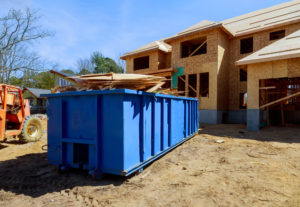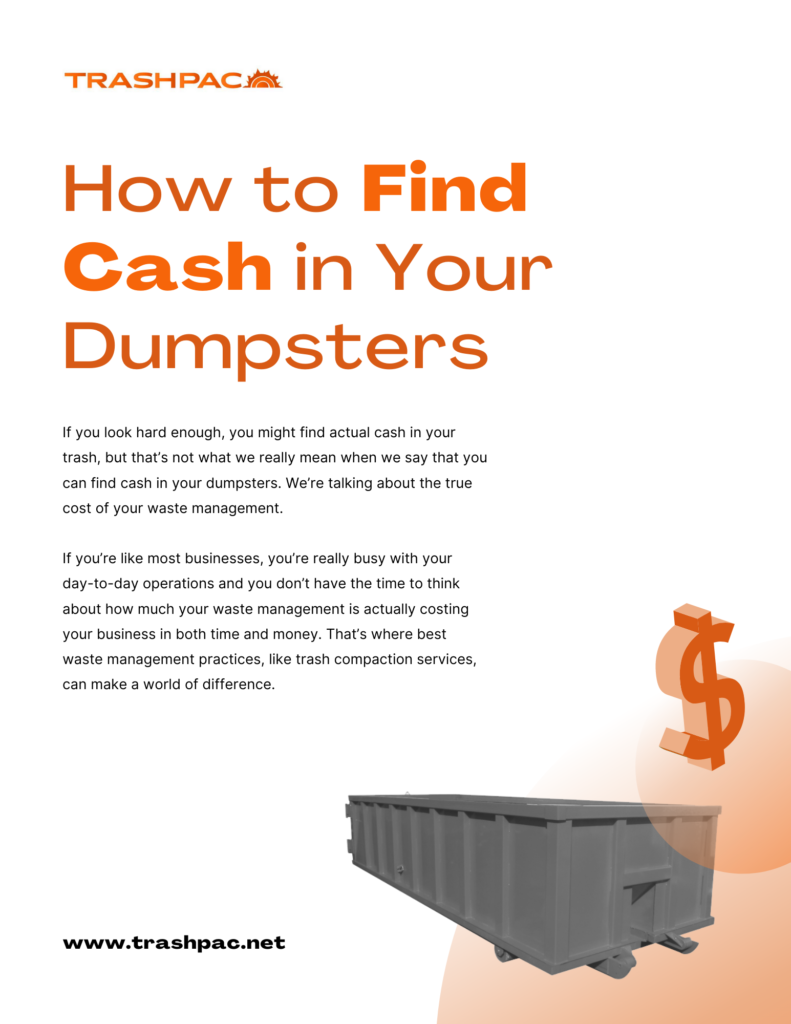The construction industry deals with major amounts of solid waste. A smart construction waste management plan improves your team’s ability to complete a project efficiently, safely, and profitably.
Construction waste management planning typically addresses these points:
- Recycling and reuse goals
- Estimated quantities of different waste types that will be produced
- Waste disposal methods
- Hazardous waste handling guidelines
Waste plans are sometimes required by government agencies as part of a set of planning documents. Your waste plan may be an official document or an internal memo. Either way, it’s wise to know exactly how waste will be handled before starting a project.
Creating an Efficient Construction Waste Management Plan
When your project generates large quantities of various waste materials, how do you dispose of everything properly?
Follow these steps for efficient construction waste management.
Determine How Many Dumpsters You’ll Need Before Starting a Project
Having the right amount of dumpsters on your worksite means always having room for your waste, without needlessly paying for containers you aren’t using.
Consider these factors when estimating your dumpster needs:
- Size and scope of the construction project
- Type of materials that you’ll be disposing of
- Duration of the project
- For a renovation project, the existing materials that will need to be removed
Maximize efficiency by picking the right container sizes for your materials.
Dumpsters are typically sized between 10 and 40 cubic yards. Larger units are higher-priced and take up more space. They also provide more capacity and are usually cheaper per cubic yard.
You may be disposing of different waste materials in different quantities. If so, you can rent dumpsters of varying sizes and assign them accordingly based on quantity per waste category.
Separate Waste Materials Into Categories
To stay organized and comply with recycling laws, separate waste types before disposal. Group together waste categories, like woods, concrete, and hazardous materials. Devote different dumpsters to different materials and clearly indicate which is which.
Sorting materials sometimes allows for reuse or repurposing. For example, bricks from a demolition job may be useful as fill material, or leftover wood can be chipped and used as landscaping mulch.
Properly sorting recyclable materials, such as metal piping or copper wiring, provides several benefits. Your project will maintain regulatory compliance and reduce environmental impact. Some recyclable items can even be easily re-sold.
Don’t Put Hazardous Waste in Your Dumpster
Hazardous waste, such as toxic chemicals, can’t be disposed of along with non-hazardous materials. Failure to properly manage hazardous waste can result in:
- Safety risks
- Environmental damage
- Regulatory violations
Call a hazardous waste disposal service if you aren’t sure how to get rid of certain waste products. There are waste companies specializing in various challenging materials, such as asbestos or electronics.
Equip Your Team With the Right Protective Equipment
Construction waste can result in accidents. Waste can be sharp, slippery, or toxic.
Depending on the materials, make sure your workers have the appropriate protective equipment. This might include sturdy gloves, hard hats, safety goggles, filtered breathing masks, steel-toed boots, and long sleeves and pants.
Schedule Regular Dumpster Pickups
Excessive waste that piles up over and around your dumpster can slow down your project. Overflow waste gets in the way, creates safety hazards, and can result in code enforcement violations.
To keep your dumpster area clean and functional, make sure your trash pickups are scheduled with time to spare. Form a pickup schedule that meshes well with your workflow. That way, your team doesn’t have to wait for dumpster replacements to wrap up so they can resume work.
Improve Construction Waste Management with Dumspter Compaction
To save time and money on your next construction project, include a dumpster compaction service in your waste management plan.
Trashpac provides mobile dumpster compaction service for construction projects in New Jersey. We come to your job site and—using a steel drum roller—compress the contents of your dumpster.
Trash compaction reduces the contents of your dumpster by 40-60%. Freeing up that much space cuts your waste management costs, reduces waste-related project delays, and helps the environment by reducing your landfill trips.
Trash compaction should be part of any construction waste management plan. Contact Trashpac to learn more and to schedule a free demo for your construction site.


